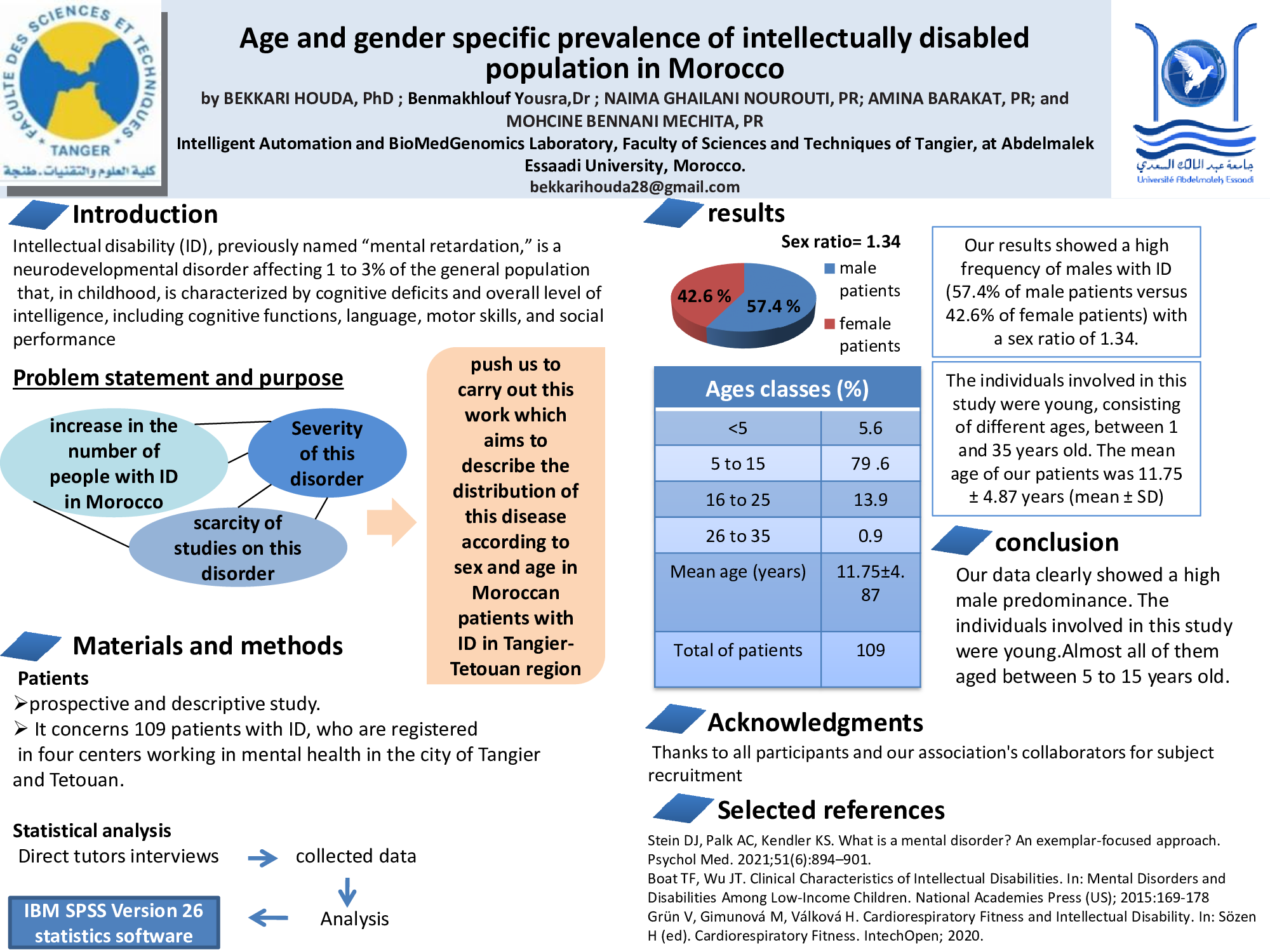Houda Bekkari
Conference 2024 Poster
Poster Title
Age- and Gender-Specific Prevalence of Intellectually Disabled Population in Morocco
Authors and Affiliations
BEKKARI HOUDA1, Ben Makhlouf Yousra1, NAIMA GHAILANI NOUROUTI1, AMINA BARAKAT1, MOHCINE BENNANI MECHITA1
1.Intelligent Automation and BioMed Genomics Laboratory, Abdelmalek Essaadi University, Tangier, Morocco
Abstract
Background
Intellectual disability (ID), previously named “mental retardation,” is a neurodevelopmental disorder affecting 1 to 3% of the general population that, in childhood, is characterized by cognitive deficits and overall level of intelligence, including cognitive functions, language, motor skills, and social performance. The increase in the number of people with ID in Morocco and the scarcity of studies on this disorder, push us to carry out this work which aims to describe the distribution of this disease according to sex and age in Moroccan patients with ID in Tangier-Tetouan region.
Methods
Our study is prospective and descriptive. It concerns 109 patients with ID, registered in four mental health centers in the city of Tangier and Tetouan. The data collected from the patients were processed and analyzed using IBM SPSS Version 26 statistics software.
Results
Our results showed a high frequency of males with ID (57.4% of male patients versus 42.6% of female patients) with a sex ratio of 1.34. The individuals involved in this study were young, consisting of different ages, between 1 and 35 years old. The mean age of our patients was 11.75 ± 4.87 years (mean ± SD), with almost all of them aged between 5 to 15 years old (79.6 % were between 5 to 15 years, 13.9% were between 26 to 35 years).
Conclusions
Our data clearly showed a high male predominance. More opportunities and educational strategies must be offered to ID patients in Morocco especially in rural areas.


Leave A Comment